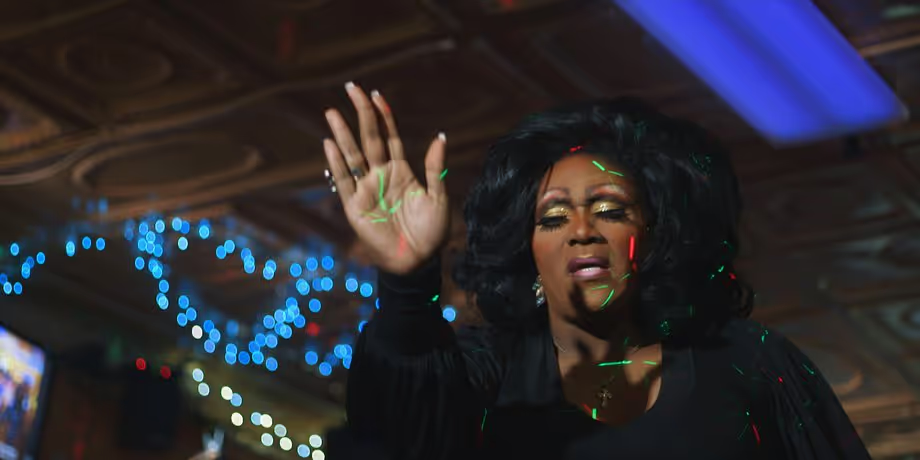The Gospel of Eureka: Discussion Guide Discussion Prompts: The Culture Of Drag
Discussion Prompts: The Culture Of Drag

How do drag performers use humor and costumes to subvert traditional notions of gender?
Drag shows are one sliver of LGBTQ+ culture (and of the range of activities hosted at the bar). What are the benefits and drawbacks of representing a larger culture with this (or any) single aspect of LGBTQ+ life?
What was your reaction to drag queens singing gospel songs (performing as Patti LaBelle) or spoofs of gospel themes (like “You Can’t Pray the Gay Away”)? Are there aspects of drag political commentary that resonate with you? How would you bridge the gap between those who interpret the performances as innocuous humor or camp and those who view them as sacrilegious and offensive?
According to the scholar Joseph Campbell, mythology plays an important role in society: As he is quoted in the New York Times, “Mythology is an organization of symbolic images and narratives metaphorical of the possibility of human experience and fulfillment in a given culture at a given time.” What is the role of reenactment and public performance in passing down collective visions of personal fulfillment? How do the performances in The Gospel of Eureka represent different visions of society? What myths and values do the bar owners hold in common with the Passion Play CEO?
Drag culture has been controversial in some feminist communities: some have accused drag performers of representing a caricatured and mocking version of femininity. Do you think drag culture can coexist with women’s empowerment? In your view, does drag destabilize or reinforce traditional binary gender identities?
